Know About Elderly Depression And Its Warning Signs
I had the fortune of listening to an interesting discussion by the chief of geriatric psychiatry at Montefiore Medical Center and Albert Einstein College of Medicine in New York. It was very interesting to note facts about depression in the elderly; sudden change in interest and moods was more than just old age changes; it is a public health concern. It is significant to know by a recent study that over 15% of the elders suffer from depression, with about 25% of them complaining of persistent feelings of sadness.
It is significant to note according to Dr. Gary Kennedy, a leading authority on elderly depression in New York many health practitioners caring for elderly depression are also not aware and are unprepared with the questions they should ask for screening for elder’s depression. Older adults seem to consider mental illness as a stigma and have the tendency to hide or ignore debilitating mental conditions which they assume is mental health treatment in mental hospitals and nursing homes.
Depression in elders, according to geriatric psychiatrist has far more frightening consequences if not addressed and treated and could also lead to the depressed elder stopping to take critical medications for serious heart and other conditions. This could increase the risk of developing other serious health conditions, with the chance of death from these conditions increasing as compared to non-depressed elders that recover more easily.
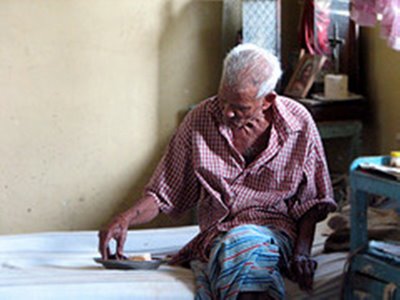
The warning signs of elderly depression:
The geriatric psychiatrist was of the opinion that most geriatric psychiatrists and knowledgeable physicians first try to find out whether the elder has been sad or depressed and had feelings of helplessness most of the time in the last 2 weeks. They also try to find out if they have lost interest in everything in the past 2 weeks.
In addition there are some more warning signals:
• If you notice that your elderly parent that usually is a happy and contented person to be now irritable, he/she could be suffering from depression.
• Social withdrawal is the next warning signal; you may find your aged parent/in-law wanting to shut themselves from their otherwise near and dear ones or have a tendency to avoid social situations they enjoyed.
• The geriatric psychiatrist was of the opinion that when elders show a lack of pride in their personal appearance it could signal elderly depression.
• One more signal was that depression amplifies the physical pain; isn’t it true it is all there in the mind.
It is still more significant to find that those that have suffered from stroke or undergone some major surgery and are recovering could develop a depressive episode, with some going to have a depression disorder. It is found that 15% of such elders leave the hospital with symptoms of depression. Lastly elders also have the tendency to go into depressive moods when they lose a spouse, child or a close relative; with this tendency being more predominant in elders losing a near and dear one.
Take the next step toward your goals
Share your requirement and find the best care providers in your area
-
Looking for a caretaker’s job? Build your profile and get in touch with families in your vicinity.
-
Discover nannies, babysitters, cooks, housekeepers, pet sitters, and elder care under one roof.
-
Get all the support you need to run a successful care center.
-
Search for appropriate centers near you depending on your needs.
Care Corner Insights: Blog Library
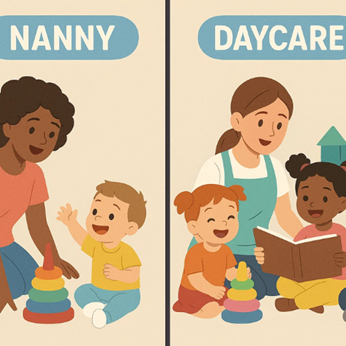
Nanny vs. Daycare in Naperville, IL: What Works Best for Indian Working Couples?
Hey Naperville Parents! Balancing work and family life is no small feat—especially for Indian working couples trying to juggle careers, household responsibilities, and parenting. One of the biggest decisions you’ll face? Choosing between a nanny or
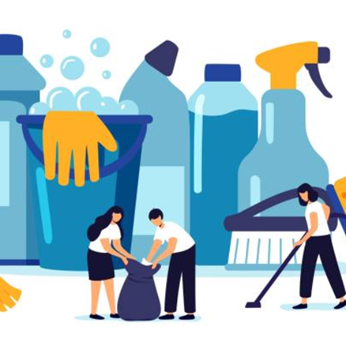
Housekeepers in Sugar Land, TX: Deep-Cleaning Checklists for Indian Homes
Housekeepers in Sugar Land, TX: Deep-Cleaning Checklists for Indian Homes Indian cooking = flavor + spices + love… but also oil splatters and stubborn stains. Time to reset! Degrease stovetops, chimneys, and exhaust fans. Scrub countertops, tiles,

12 Easy After-School Snack Ideas for Kids Who Get Hungry Quickly
School’s out, and the hunger hits hard! If your little ones come home ravenous and ready to raid the kitchen, you’re not alone. After-school snack time is prime time for refueling, recharging, and maybe even sneaking in a little nutrition. So here ar

Vegetarian Home Cook Services in Sunnyvale, CA: North & South Indian Meal Prep for Busy NRIs
Between work, family, and daily responsibilities, finding time to cook fresh meals can be difficult. That’s when a vegetarian home cook service in Sunnyvale makes life easier—bringing authentic North and South Indian dishes straight to your table. T
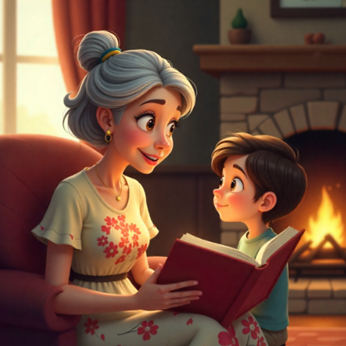
Hiring a Live-In Nanny in Plano, TX: A Practical Guide for NRI Households
For NRI families living in Plano, TX, raising children while managing work and household responsibilities can feel overwhelming. Many parents find that hiring a live-in nanny provides the right balance of support, convenience, and cultural comfort. U
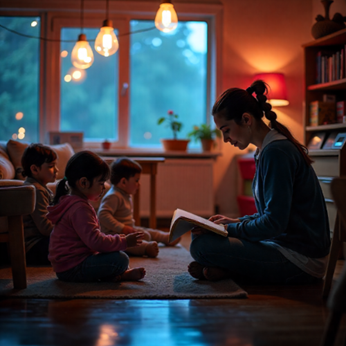
Daycares in Fremont, CA for Indian Toddlers: Curriculum, Food Policies & Waitlists
You’ve probably met them — the parents at the park chatting about Montessori vs. play-based learning while handing their toddler a homemade paratha. The ones who ask every daycare in Fremont if they serve vegetarian meals. And yes, the ones who have
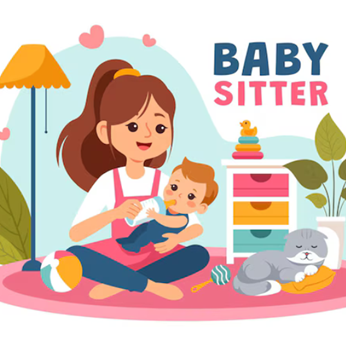
Babysitters in Jersey City, NJ for NRI Parents: Last-Minute, Weekend & Evening Options
You’ve probably seen them — the parents juggling grocery bags in one hand and a phone call to grandma in India in the other, while trying to keep their toddler from running into the road. The ones who cancel dinner plans because the babysitter bailed

Best Nanny Services in Edison, NJ for Indian Families: Costs, Language, and Cultural Fit
Edison, NJ, is home to one of the largest Indian communities in the U.S., and finding a nanny here often means looking for more than just childcare skills. For Indian families, cultural understanding, language fluency, and traditional values play a b

What Is Helicopter Parenting? How It Affects Children and Ways to Avoid It
You’ve probably seen them. The parents at the playground who shadow every move, wiping invisible germs off the slide before their child touches it. The ones who fill out job applications for their teens. And yes, the ones who email college professors
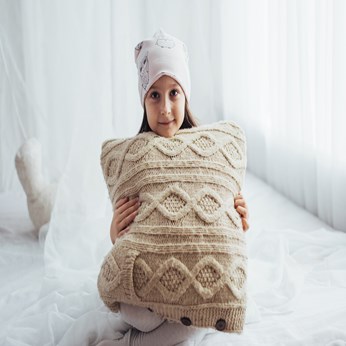
Are Weighted Blankets Safe for Children? Pros and Cons Explained
Weighted blankets have become a cozy trend in recent years. From helping adults sleep better to calming anxiety, they’ve earned a spot in many households. But when it comes to kids, especially the little ones, parents often ask: Are weighted blankets